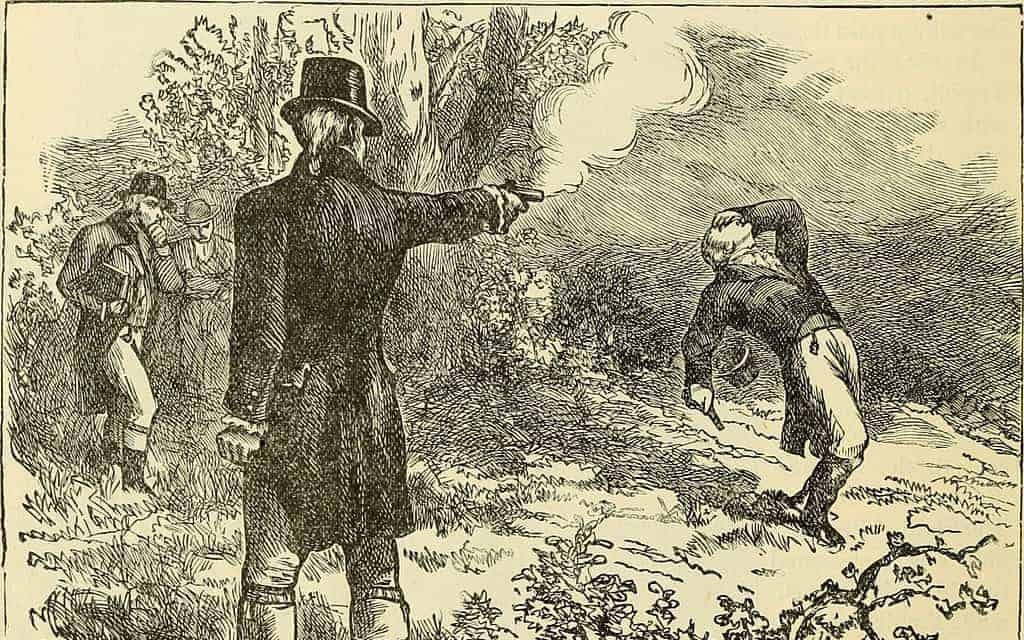Long before Alexander Hamilton was the subject of a smash-hit musical, he was a man with a dream. Though he was born on a British-controlled island in the Caribbean, Hamilton was an American patriot. And like many young patriots, he dreamed of making his adopted home in the 13 colonies strong and independent. Hamilton followed that dream through the Revolutionary War and into a place in the heights of political power. There, he fought to help establish a strong central government that would unite the new country and make it wealthy. But like many men with a dream, Hamilton also had a powerful enemy.
Hamilton’s enemy was a man named Aaron Burr. Aaron Burr was a lawyer, military officer, and Vice President of the United States. And depending on who you ask, he was also possibly a traitor and a murder. Like Hamilton, Burr served in the Revolutionary War and later became an important politician in the years after independence. But while Hamilton was a Federalist, meaning that he wanted the federal government to have more control over the States, Anti-Federalists like Burr believed that a strong federal government was a threat to liberty. Naturally, this made the two political opponents.

But their rivalry really began to get personal after the election of 1800. That year, Burr ran for vice president under Thomas Jefferson. At the time, the system for electing the president worked a little differently than it does today. The candidate who got the most electoral college votes became the president, and the candidate who got the second most became vice president. So, the idea was for a party to get its candidate for president the most electoral votes, and their vice presidential candidate the second most. But there was a bit of a mix up in this election and Burr and Jefferson actually tied.
Another vote was held, and if Burr could get one more vote than Jefferson, he would be president. Hamilton disliked both candidates. But he decided that while he might not like Jefferson, he was far better than Burr. So, he used all the political influence he had to push for Jefferson, who eventually won the vote. And when the election of 1804 rolled around and Burr ran again, a New York paper published a letter to Hamilton’s father in law saying that Hamilton thought Burr was a dangerous man “who ought not be trusted with the reins of government.”

Even worse, it mentioned that there was “a still more despicable opinion which General Hamilton has expressed of Mr. Burr” at a political dinner. Burr read the letter and, naturally, wanted to know what this despicable opinion was. So, he sent in his own letter demanding Hamilton explain himself. Hamilton replied that Burr was making too much of the issue and that he had never said anything especially “despicable” about Burr. Or at least, if he had, he couldn’t remember it. But this wasn’t enough of an explanation for Burr. And he eventually challenged Hamilton to settle the argument with pistols.

